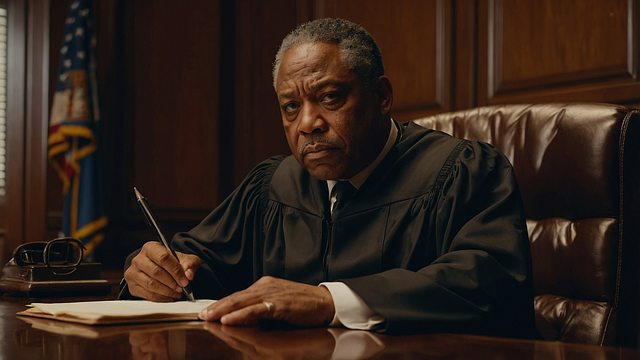Investigating financial crimes in healthcare involves navigating complex legal challenges rooted in evolving regulations, medical ethics, and patient privacy. Deep understanding of both criminal/civil law and industry dynamics is crucial to overcome defense verdicts. Key strategies include robust internal controls, technology for fraud detection, ethical culture, employee training, and staying updated on regulatory changes to ensure transparency and mitigate fraud within healthcare's intricate ecosystem. "Legal Challenges in Healthcare Regulations" are central to successful prosecutions, fostering integrity in financial systems.
“Unraveling the intricate world of finance crime probes, particularly within healthcare, this article offers a comprehensive guide. We explore the evolving landscape of healthcare regulations and their often-overlooked loopholes, which pose significant legal challenges.
The investigation of financial crimes in healthcare is fraught with hurdles, from complex laws to unique fraud schemes. We delve into best practices for healthcare finance professionals to enhance transparency and mitigate risks, ensuring patient trust and safeguarding the industry from illegal activities.”
- Understanding Finance Crime Probes: A Comprehensive Overview
- The Complex Landscape of Healthcare Regulations and Their Loopholes
- Legal Hurdles in Investigating Healthcare-Related Financial Crimes
- Best Practices for Enhancing Transparency and Preventing Fraud in Healthcare Finance
Understanding Finance Crime Probes: A Comprehensive Overview
Finance crime probes are meticulously designed investigations into illegal financial activities, ranging from accounting fraud to money laundering. These probes are crucial in addressing the growing complexity of white-collar and economic crimes, which often involve intricate corporate structures and sophisticated financial schemes. Law enforcement agencies, in collaboration with regulatory bodies, conduct these inquiries to ensure compliance with healthcare regulations, among other sectors. Navigating legal challenges within these investigations require a deep understanding of both criminal and civil laws, as well as the specific industry dynamics.
The landscape of finance crime probes is characterized by intricate legal battles, particularly when dealing with corporate and individual clients. Winning challenging defense verdicts demands robust strategies that account for the nuances of healthcare regulations and other relevant frameworks. As these cases often hinge on technicalities and interpretations of laws, a comprehensive overview is essential to unravelling the complexities involved in white-collar and economic crimes investigations.
The Complex Landscape of Healthcare Regulations and Their Loopholes
The healthcare industry is governed by a complex web of regulations designed to protect patients and ensure ethical practices. However, this intricate landscape presents numerous legal challenges and often leaves room for interpretation, leading to potential loopholes that can be exploited. These regulatory gaps can provide cover for fraudulent activities, such as insurance claims fraud or the misuse of patient data, posing significant risks to both individuals and institutions.
Navigating these complexities requires a deep understanding of the ever-evolving legal framework. High-stakes cases often arise from disputes over compliance, where legal experts must scrutinize every detail to determine whether an organization has fallen victim to loopholes or intentionally violated regulations. The outcome can be pivotal, potentially leading to severe penalties or even the complete dismissal of all charges for his clients.
Legal Hurdles in Investigating Healthcare-Related Financial Crimes
Investigating healthcare-related financial crimes presents a unique set of legal hurdles due to the complex interplay between medical ethics, patient privacy, and financial regulations. The industry’s intricate nature, marked by specialized terminology and fast-evolving standards, poses significant challenges for law enforcement agencies. Gaining access to critical information often requires navigating a labyrinth of strict data protection laws designed to safeguard sensitive patient records. This balancing act demands investigators possess not only legal expertise but also an understanding of healthcare practices to ensure compliance while uncovering potential fraudulent activities.
Legal challenges further arise from the diverse nature of stakeholders involved, including insurance companies, pharmaceutical firms, and healthcare providers, each with their own regulatory frameworks. For his clients, this complexity can result in lengthy delays as investigators strive to untangle financial misdeeds within a web of legal and ethical considerations. Ultimately, successful prosecutions require robust cooperation between these entities and the judiciary, fostering transparency that transcends philanthropic and political communities’ interests for the greater good of public health and financial integrity.
Best Practices for Enhancing Transparency and Preventing Fraud in Healthcare Finance
In the realm of healthcare finance, enhancing transparency and preventing fraud are paramount to maintaining integrity within the system. Best practices involve implementing robust internal controls, such as segregation of duties and regular audits, to mitigate risks. Technology plays a crucial role; utilizing advanced data analytics and artificial intelligence can detect anomalies and potential fraudulent activities more effectively than traditional methods. Additionally, promoting a culture of ethics and compliance is essential, ensuring that all personnel understand their responsibilities and the consequences of non-compliance with healthcare regulations, including Legal Challenges in Healthcare Regulations.
Education and training are key to empowering employees to recognize red flags and report suspicious behavior. Regular updates on regulatory changes and industry best practices should be provided to keep everyone informed. While general criminal defense strategies may vary across the country, understanding the legal implications of fraud in healthcare ensures that organizations can mount robust defenses during jury trials if necessary. These measures collectively contribute to a more transparent and secure financial landscape within the healthcare sector.






